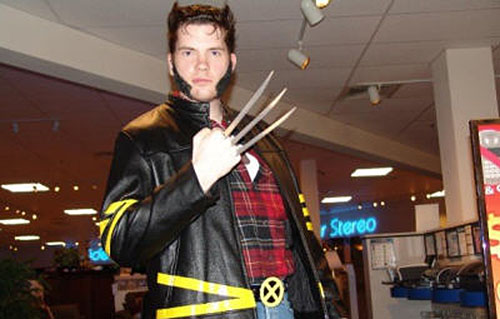Dexter Morgan’s final resting place revealed in the series finale stunned a lot of fans, but was the controversial twist ending also a veiled reference to Mark Twitchell — a convicted killer who replicated the show in real-life?
The ultra-violent Showtime television series concluded its eighth and last season with a bizarre final scene that nobody was expecting (warning: spoilers ahead).
In short, Dexter survives sailing into a hurricane and turns up looking like some kind of lumberjack, hiding in a cabin in the wilderness. He has a big beard and is wearing flannel.
The ending stirred up stereotypical images of Canada and fans across social media were quick to point out that silly connection:
How did #Dexter end up surviving a hurricane and becoming a lumberjack? Like did he do breastsroke to Canada wtf
— Rob Defina (@RDefina) September 23, 2013
And that Monty Python song:
I’m a lumberjack and I’m okay I sleep all night and I work all day…Really??? #Dexter #fail — Ed Mulholland (@muls96) September 23, 2013
Of course, Mark Twitchell, who built his own Dexter-inspired kill room and assumed the fictional serial killer’s identity online, is from western Canada. He is also a big fan of Wolverine, the Marvel character who once worked as a Canadian lumberjack.

Mark Twitchell, known as the “Dexter Killer,” once dressed up as superhero Wolverine (in flannel) for Halloween in Canada.
Is there some kind of Dexter-Lumberjack-Wolverine-Twitchell connection here? Did the show finally acknowledge the “Dexter Killer” case in this round-about way after declining to provide in-depth official comment on the convicted murderer for several years?
I’m still mad they had #Dexter move to Canada and become Wolverine to end the series. — Charles Akpan (@TheMusicMogul) September 23, 2013
There is some evidence to back up this wild theory.
Scott Buck, who co-wrote the final episode, has given Dexter fans a bit of a hint on what he was really thinking when filming that controversial last scene.
He told the Hollywood Reporter that the lumberjack setting is a reference to “the land of the serial killers” — in the Pacific Northwest.
So, depending on your definition of the Pacific Northwest (there appear to be many), that reference could easily stretch into Canada, where Twitchell committed his crimes.
But even if it doesn’t, it’s clear viewers immediately thought of Canada anyway — not America or even a US location for Dexter’s final stand in isolation. For a show that could have done anything after eight seasons, it’s an interesting choice to go with an ambiguous ending that conjures up images of Canada, especially considering the wide-spread media coverage of the real-life Dexter case.
The final scene also demonstrates how the show shrugged off any moral responsibility it may have once felt to make sure monsters like Dexter don’t win. Sure, he’s now trapped in the torment of his own making, but the series still let him kill dozens of people without ever getting caught.
It also goes against the plan the original showrunner had for the show, which would have been a much more effective conclusion.
If the last scene is a reference to Twitchell, that’s likely the closest fans will ever see Dexter give a wink and a nod to the real-life case. It doesn’t look like Dexter creator Jeff Lindsay is going to touch the Twitchell story in any forthcoming Dexter novels as he’s still adamant there’s no possible way to link real-life violence with his creation.
In a recent “ask me anything” session on Reddit, Lindsay totally dismissed the idea that fiction can inspire reality:
“Serial killers can’t be ‘inspired.’ They are born that way. They may choose a method of expression, but they either got it or don’t. How many people saw or read Harry Potter? How many of them got magical powers?”
It’s an odd remark to make, especially when the evidence of a connection between Twitchell and the Dexter series is quite clear.
The body of research into on-screen media violence is also stacking up to show there is a risk factor in creating real violence, especially among impressionable youth, who may become more aggressive and lose their sense of empathy from overexposure to violent imagery.
Certainly, this shouldn’t trigger arguments in favour of censorship and there is a lot more research to be done. But there should be no harm in at least acknowledging that, as I argued in the Guardian recently, some twisted minds can create their “own toxic brew after reading the master recipe.”
No one from Dexter is to blame for what Mark Twitchell and other killers did in the name of Dexter Morgan, but to dismiss the connection completely is, quite frankly, ridiculous.
Share This: